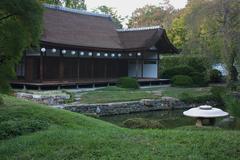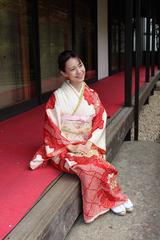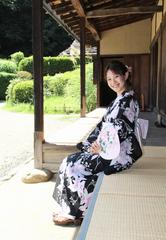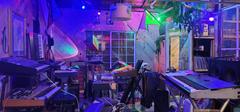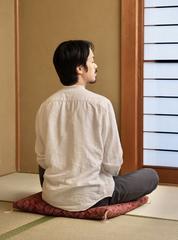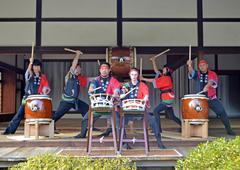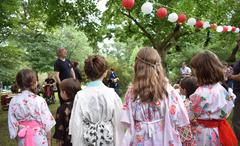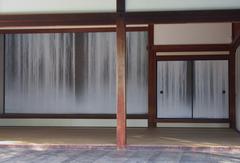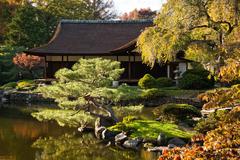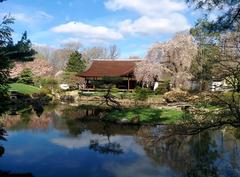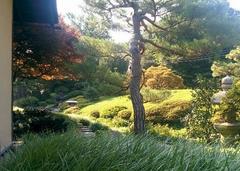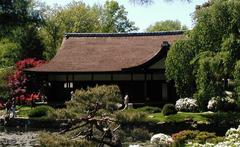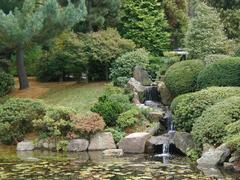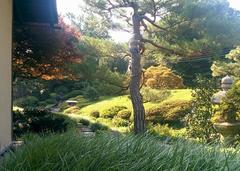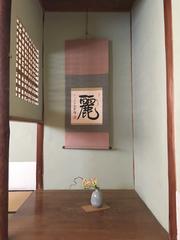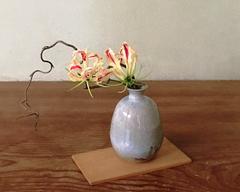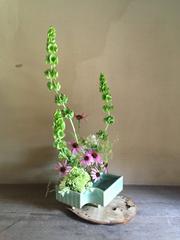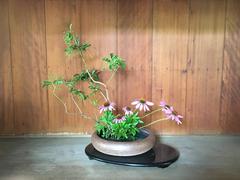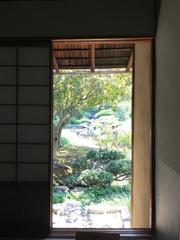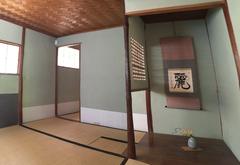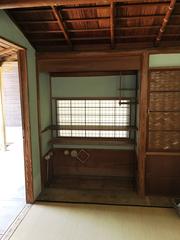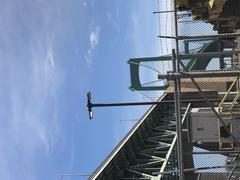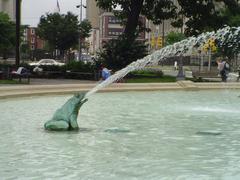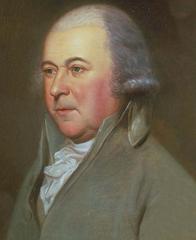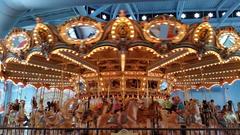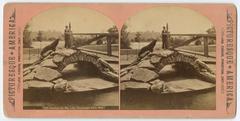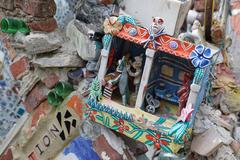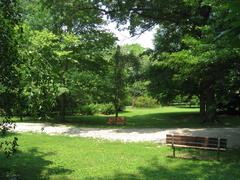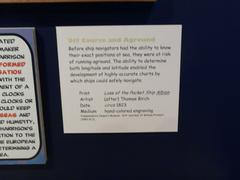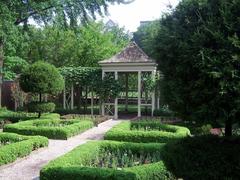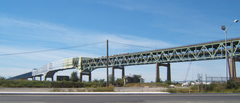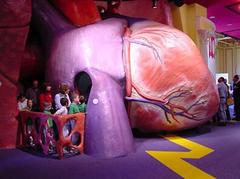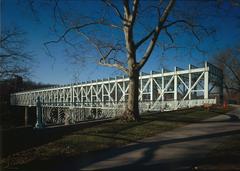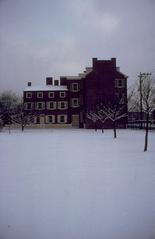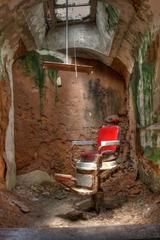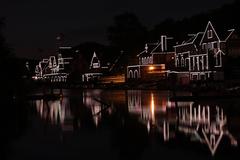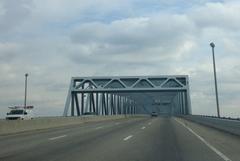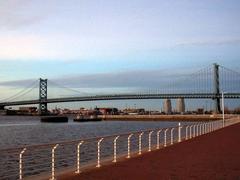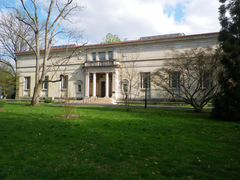
Comprehensive Guide to Visiting Shofuso Japanese House and Garden, Philadelphia, United States
Date: 19/07/2024
Introduction
Welcome to Shofuso Japanese House and Garden, a serene historical site nestled in the heart of Philadelphia’s West Fairmount Park. This guide aims to provide you with comprehensive information about this unique cultural landmark, including its historical background, visiting hours, ticket prices, and significant events. Originally constructed in 1953 in Nagoya, Japan by renowned architect Junzo Yoshimura, Shofuso was designed to showcase traditional 17th-century Japanese architecture at New York City’s Museum of Modern Art. Following the exhibition, the house was relocated to Philadelphia in 1958, where it stands as a testament to the enduring cultural exchange between Japan and the United States (Shofuso History).
Shofuso Japanese House and Garden offers a rich blend of history, artistry, and natural beauty, making it a must-visit destination for anyone interested in Japanese culture. The site features a meticulously maintained garden designed by Tansai Sano, complete with koi ponds, tea gardens, and courtyard gardens. It also houses contemporary murals by Hiroshi Senju, blending traditional and modern Japanese art forms seamlessly (Hiroshi Senju). Managed by the Japan America Society of Greater Philadelphia, Shofuso serves as a cultural bridge, hosting various events, educational programs, and workshops throughout the year to promote cultural understanding and appreciation between the two nations (Japan America Society).
Table of Contents
- Introduction
- History of Shofuso Japanese House and Garden
- Visitor Information
- Special Events and Guided Tours
- Photographic Spots
- Educational Programs and Community Engagement
- FAQ
- Conclusion
History of Shofuso Japanese House and Garden
Origins and Construction
The Shofuso Japanese House and Garden, located in Philadelphia’s West Fairmount Park, is a testament to the enduring cultural exchange between Japan and the United States. The house was originally constructed in 1953 in Nagoya, Japan, by architect Junzo Yoshimura. It was designed as a traditional 17th-century-style Japanese house, intended to showcase Japanese architecture and culture at the Museum of Modern Art in New York City. The house was part of an exhibition called “The House in the Museum Garden,” which aimed to introduce American audiences to Japanese residential architecture (Shofuso History).
Relocation to Philadelphia
After the exhibition concluded in 1954, the house was dismantled and shipped to Philadelphia. It was reassembled in West Fairmount Park, a location chosen for its serene and picturesque setting, which complemented the house’s aesthetic and cultural significance. The relocation was part of a broader effort to foster cultural understanding and appreciation between Japan and the United States during the post-World War II era (Fairmount Park).
Restoration and Renovation
Over the years, Shofuso has undergone several restorations to preserve its structural integrity and historical authenticity. In 1976, the house received significant attention as part of the United States Bicentennial celebrations. Japanese craftsmen were brought in to restore the house using traditional techniques and materials, ensuring that it remained true to its original design. This restoration was funded by both the Japanese and American governments, highlighting the house’s importance as a symbol of international friendship (Bicentennial Restoration).
The Garden’s Evolution
The garden surrounding Shofuso is an integral part of the experience, designed to complement the house and provide a tranquil environment for visitors. The garden features traditional elements such as a koi pond, a tea garden, and a courtyard garden. It was designed by Tansai Sano, a renowned Japanese garden designer, and has been meticulously maintained to reflect the changing seasons and traditional Japanese horticultural practices (Japanese Garden Design).
Murals by Hiroshi Senju
In 2007, Shofuso received a significant artistic addition in the form of 20 murals by contemporary Japanese artist Hiroshi Senju. These murals, depicting waterfalls, were installed in the house’s interior and are a modern interpretation of traditional Japanese art. Senju’s work has been internationally acclaimed, and his murals at Shofuso blend seamlessly with the house’s historical architecture, creating a unique fusion of old and new (Hiroshi Senju).
Cultural Significance
Shofuso Japanese House and Garden serves as a cultural bridge, offering visitors a glimpse into traditional Japanese life and aesthetics. It is a place of learning and reflection, hosting various cultural events, tea ceremonies, and educational programs throughout the year. The house and garden are managed by the Japan America Society of Greater Philadelphia, which works to promote cultural exchange and understanding between Japan and the United States (Japan America Society).
Recognition and Awards
Shofuso has been recognized for its cultural and historical significance by various organizations. It is listed on the Philadelphia Register of Historic Places and has received numerous awards for its preservation efforts. In 2016, it was named one of the top Japanese gardens in North America by the Journal of Japanese Gardening, a testament to its authenticity and beauty (Journal of Japanese Gardening).
Visitor Information
Visiting Hours and Tickets
Shofuso Japanese House and Garden is open to visitors from April to October. Visiting hours are from 10 AM to 4 PM, Wednesday through Sunday. Tickets can be purchased online or at the entrance. General admission is $12 for adults, $8 for seniors, and $7 for students and children aged 5–17. Members and children under 5 can enter for free. Group discounts are available (Visitor Information).
Travel Tips and Nearby Attractions
Shofuso is easily accessible by car, with parking available on-site. Public transportation options include the SEPTA bus and trolley services. Nearby attractions include the Please Touch Museum, the Philadelphia Zoo, and the historic Fairmount Park. Combining visits to these sites can make for a full day of exploration and enjoyment.
Accessibility
Shofuso Japanese House and Garden strives to be accessible to all visitors. While the historic nature of the house presents some limitations, efforts have been made to accommodate visitors with disabilities. Contact the site in advance to discuss specific needs and ensure a comfortable visit.
Special Events and Guided Tours
Annual Cherry Blossom Festival
One of the highlights of the year at Shofuso is the Annual Cherry Blossom Festival, celebrating the arrival of spring and the beauty of cherry blossoms. This festival features traditional Japanese performances, food, and activities, attracting thousands of visitors each year (Cherry Blossom Festival).
Guided Tours
Shofuso offers guided tours that provide deeper insights into its history and cultural significance. These tours are led by knowledgeable guides and cover various aspects of the house and garden, enhancing the visitor experience. Tours are available by appointment and can be tailored to specific interests (Guided Tours).
Photographic Spots
Best Places to Take Photos
Shofuso Japanese House and Garden offers numerous photogenic spots. The koi pond, tea garden, and the interior with its traditional tatami mats and sliding shoji doors are particularly popular. Visitors are encouraged to capture these serene and beautiful moments while respecting the site and other guests.
Educational Programs and Community Engagement
Workshops and Classes
Shofuso plays a vital role in education, offering programs for students and adults alike. These programs include workshops on traditional Japanese arts and crafts, language classes, and lectures on Japanese history and culture. The aim is to provide a comprehensive understanding of Japan’s rich cultural heritage and its influence on global culture (Educational Programs).
Community Events
The house and garden are also a hub for community engagement, hosting events such as the annual Cherry Blossom Festival, which celebrates the arrival of spring and the beauty of cherry blossoms. This festival, along with other cultural events, attracts thousands of visitors each year and fosters a sense of community and cultural appreciation (Cherry Blossom Festival).
FAQ
Common Visitor Questions
Q: What are the visiting hours for Shofuso Japanese House and Garden?
A: Shofuso is open from 10 AM to 4 PM, Wednesday through Sunday, from April to October.
Q: How much do tickets cost?
A: General admission is $12 for adults, $8 for seniors, and $7 for students and children aged 5–17. Members and children under 5 can enter for free.
Q: Is there parking available at Shofuso?
A: Yes, on-site parking is available.
Q: Are there any special events during my visit?
A: Shofuso hosts various events throughout the year, including the Annual Cherry Blossom Festival. Check the official website for a current events calendar.
Q: Is Shofuso accessible for visitors with disabilities?
A: While there are some limitations due to the historic nature of the house, efforts have been made to accommodate visitors with disabilities. Contact the site in advance to discuss specific needs.
Conclusion
In summary, Shofuso Japanese House and Garden offers a unique and enriching experience for visitors, blending historical architecture, traditional and modern Japanese art, and serene natural landscapes. This cultural landmark serves as a symbol of Japanese-American friendship and provides a peaceful retreat in the bustling city of Philadelphia. Whether you are interested in its rich history, artistic significance, or the various cultural events it hosts, Shofuso has something for everyone. Don’t miss the opportunity to explore this tranquil and culturally significant site. For more information and to stay updated on events and programs, follow Shofuso on social media and download the Audiala app for an enhanced visiting experience (Japan America Society).
References
- Shofuso History, Japan America Society of Greater Philadelphia (https://japanphilly.org/shofuso/)
- Fairmount Park, Fairmount Park Conservancy (https://www.fairmountpark.org/)
- Bicentennial Restoration, Bicentennial Organization (https://bicentennial.org/)
- Japanese Garden Design, Japanese Gardens Organization (https://japanesegardens.org/)
- Hiroshi Senju, Hiroshi Senju Official Website (https://hiroshisenju.com/)
- Japan America Society of Greater Philadelphia, Japan America Society (https://japanphilly.org/)
- Journal of Japanese Gardening, Journal of Japanese Gardening (https://jgarden.org/)
- Visitor Information, Japan America Society of Greater Philadelphia (https://japanphilly.org/visit/)
- Cherry Blossom Festival, Japan America Society of Greater Philadelphia (https://japanphilly.org/cherryblossom/)
- Educational Programs, Japan America Society of Greater Philadelphia (https://japanphilly.org/education/)
